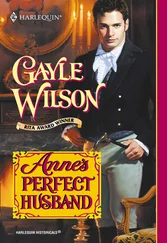Constance Woolson - Anne - A Novel
Здесь есть возможность читать онлайн «Constance Woolson - Anne - A Novel» — ознакомительный отрывок электронной книги совершенно бесплатно, а после прочтения отрывка купить полную версию. В некоторых случаях можно слушать аудио, скачать через торрент в формате fb2 и присутствует краткое содержание. Жанр: Классический детектив, foreign_detective, foreign_prose, на английском языке. Описание произведения, (предисловие) а так же отзывы посетителей доступны на портале библиотеки ЛибКат.
- Название:Anne: A Novel
- Автор:
- Жанр:
- Год:неизвестен
- ISBN:нет данных
- Рейтинг книги:5 / 5. Голосов: 1
-
Избранное:Добавить в избранное
- Отзывы:
-
Ваша оценка:
- 100
- 1
- 2
- 3
- 4
- 5
Anne: A Novel: краткое содержание, описание и аннотация
Предлагаем к чтению аннотацию, описание, краткое содержание или предисловие (зависит от того, что написал сам автор книги «Anne: A Novel»). Если вы не нашли необходимую информацию о книге — напишите в комментариях, мы постараемся отыскать её.
Anne: A Novel — читать онлайн ознакомительный отрывок
Ниже представлен текст книги, разбитый по страницам. Система сохранения места последней прочитанной страницы, позволяет с удобством читать онлайн бесплатно книгу «Anne: A Novel», без необходимости каждый раз заново искать на чём Вы остановились. Поставьте закладку, и сможете в любой момент перейти на страницу, на которой закончили чтение.
Интервал:
Закладка:
"You were not at church this morning," said the girl, looking at him rather gravely, but giving him her hand.
"No, I was not; but a merry Christmas all the same, Annet," answered the youth, throwing back his golden head with careless grace. At this moment Tita came forward from her furry corner, where she had been lying with her head on her arm, half asleep, and seated herself in the red light of the fire, gazing into the blaze with soft indifference. Her dark woollen dress was brightened by the ribbons which circled her little waist and knotted themselves at the ends of the long braids of her hair. She had a string of yellow beads round her neck, and on her feet the little slippers which Anne had fashioned for her with so much care. Her brown hands lay crossed on her lap, and her small but bold-featured profile looked more delicate than usual, outlined in relief like a little cameo against the flame. The visitor's eyes rested upon her for a moment, and then turned back to Anne. "There is to be a dance to-night down in one of the old warehouses," he said, "and I want you to go."
"A dance!" cried the boys; "then we are going too. It is Christmas night, and we know how to dance. See here." And they sprang out into the centre of the room, and began a figure, not without a certain wild grace of its own, keeping time to the shrill whistling of Gabriel, who was the fifer and leader of the band.
Miss Lois put down her knitting, and disapproved, for the old training was still strong in her; then she remembered that these were things of the past, shook her head at herself, sighed, and resumed it again.
"Of course you will go," said the visitor.
"I do not know that I can go, Rast," replied Anne, turning toward her father, as if to see what he thought.
"Yes, go," said Douglas – "go, Annet." He hardly ever used this name, which the children had given to their elder sister – a name that was not the French "Annette," but, like the rest of the island patois , a mispronunciation – "An´net," with the accent on the first syllable. "It is Christmas night," said Douglas, with a faint interest on his faded face; "I should like it to be a pleasant recollection for you, Annet."
The young girl went to him; he kissed her, and then rose to go to his study; but Tita's eyes held him, and he paused.
"Will you go, Miss Lois?" said Anne.
"Oh no, child," replied the old maid, primly, adjusting her spectacles.
"But you must go, Miss Lois, and dance with me," said Rast, springing up and seizing her hands.
"Fie, Erastus! for shame! Let me go," said Miss Lois, as he tried to draw her to her feet. He still bent over her, but she tapped his cheek with her knitting-needles, and told him to sit down and behave himself.
"I won't, unless you promise to go with us," he said.
"Why should you not go, Lois?" said Douglas, still standing at the door. "The boys want to go, and some one must be with them to keep them in order."
"Why, doctor, imagine me at a dancing party!" said Miss Lois, the peach-like color rising in her thin cheeks again.
"It is different here, Lois; everybody goes."
"Yes; even old Mrs. Kendig," said Tita, softly.
Miss Lois looked sharply at her; old Mrs. Kendig was fat, toothless, and seventy, and the active, spare New England woman felt a sudden wrath at the implied comparison. Griselda was not tried upon the subject of her age, or we might have had a different legend. But Tita looked as idly calm as a summer morning, and Miss Lois turned away, as she had turned a hundred times before, uncertain between intention and simple chance.
"Very well, then, I will go," she said. "How you bother me, Erastus!"
"No, I don't," said the youth, releasing her. "You know you like me, Miss Lois; you know you do."
"Brazen-face!" said Miss Lois, pushing him away. But any one could see that she did like him.
"Of course I may go, father?" said Tita, without stirring, but looking at him steadily.
"I suppose so," he answered, slowly; "that is, if Erastus will take care of you."
"Will you take care of me, Erastus?" asked the soft voice.
"Don't be absurd, Tita; of course he will," said Miss Lois, shortly. "He will see to you as well as to the other children."
And then Douglas turned and left the room.
Erastus, or Rast, as he was called, went back to his place beside Anne. He was a remarkably handsome youth of seventeen, with bright blue eyes, golden hair, a fine spirited outline, laughing mouth, and impetuous, quick movements; tall as a young sapling, his figure was almost too slender for its height, but so light and elastic that one forgave the fault, and forgot it in one look at the mobile face, still boyish in spite of the maturity given by the hard cold life of the North.
"Why have we not heard of this dance before, Erastus?" asked Miss Lois, ever mindful and tenacious of a dignity of position which no one disputed, but which was none the less to her a subject of constant and belligerent watchfulness – one by which she gauged the bow of the shop-keeper, the nod of the passing islander, the salute of the little half-breed boys who had fish to sell, and even the guttural ejaculations of the Chippewas who came to her door offering potatoes and Indian sugar.
"Because it was suggested only a few hours ago, up at the fort. I was dining with Dr. Gaston, and Walters came across from the commandant's cottage and told me. Since then I have been hard at work with them, decorating and lighting the ball-room."
"Which one of the old shells have you taken?" asked Miss Lois. "I hope the roof will not come down on our heads."
"We have Larrabee's; that has the best floor. And as to coming down on our heads, those old warehouses are stronger than you imagine, Miss Lois. Have you never noticed their great beams?"
"I have noticed their toppling fronts and their slanting sides, their bulgings out and their leanings in," replied Miss Lois, nodding her head emphatically.
"The leaning tower of Pisa, you know, is pronounced stronger than other towers that stand erect," said Rast. "That old brown shell of Larrabee's is jointed together so strongly that I venture to predict it will outlive us all. We might be glad of such joints ourselves, Miss Lois."
"If it will only not come down on our heads to-night, that is all I ask of its joints," replied Miss Lois.
Soon after seven o'clock the ball opened: darkness had already lain over the island for nearly three hours, and the evening seemed well advanced.
"Oh, Tita!" said Anne, as the child stepped out of her long cloak and stood revealed, clad in a fantastic short skirt of black cloth barred with scarlet, and a little scarlet bodice, "that dress is too thin, and besides – "
"She looks like a circus-rider," said Miss Lois, in dismay. "Why did you allow it, Anne?"
"I knew nothing of it," replied the elder sister, with a distressed expression on her face, but, as usual, not reproving Tita. "It is the little fancy dress the fort ladies made for her last summer when they had tableaux. It is too late to go back now; she must wear it, I suppose; perhaps in the crowd it will not be noticed."
Tita, unmoved, had walked meanwhile over to the hearth, and sitting down on the floor before the fire, was taking off her snow-boots and donning her new slippers, apparently unconscious of remark.
The scene was a striking one, or would have been such to a stranger. The lower floor of the warehouse had been swept and hastily garnished with evergreens and all the flags the little fort could muster; at each end on a broad hearth a great fire of logs roared up the old chimney, and helped to light the room, a soldier standing guard beside it, and keeping up the flame by throwing on wood every now and then from the heap in the corner near by. Candles were ranged along the walls, and lanterns hung from the beams above; all that the island could do in the way of illumination had been done. The result was a picturesque mingling of light and shade as the dancers came into the ruddy gleam of the fires and passed out again, now seen for a moment in the paler ray of a candle farther down the hall, now lost in the shadows which everywhere swept across the great brown room from side to side, like broad-winged ghosts resting in mid-air and looking down upon the revels. The music came from six French fiddlers, four young, gayly dressed fellows, and two grizzled, withered old men, and they played the tunes of the century before, and played them with all their might and main. The little fort, a one-company post, was not entitled to a band; but there were, as usual, one or two German musicians among the enlisted men, and these now stood near the French fiddlers and watched them with slow curiosity, fingering now and then in imagination the great brass instruments which were to them the keys of melody, and dreaming over again the happy days when they, too, played "with the band." But the six French fiddlers cared nothing for the Germans; they held themselves far above the common soldiers of the fort, and despised alike their cropped hair, their ideas, their uniforms, and the strict rules they were obliged to obey. They fiddled away with their eyes cast up to the dark beams above, and their tunes rang out in that shrill, sustained, clinging treble which no instrument save a violin can give. The entire upper circle of society was present, and a sprinkling of the second; for the young officers cared more for dancing than for etiquette, and a pretty young French girl was in their minds of more consequence than even the five Misses Macdougall with all their blood, which must have been, however, of a thin, although, of course, precious, quality, since between the whole five there seemed scarcely enough for one. The five were there, however, in green plaided delaines with broad lace collars and large flat shell-cameo breastpins with scroll-work settings: they presented an imposing appearance to the eyes of all. The father of these ladies, long at rest from his ledgers, was in his day a prominent resident official of the Fur Company; his five maiden daughters lived on in the old house, and occupied themselves principally in remembering him. Miss Lois seated herself beside these acknowledged heads of society, and felt that she was in her proper sphere. The dance-music troubled her ears, but she endured it manfully.
Читать дальшеИнтервал:
Закладка:
Похожие книги на «Anne: A Novel»
Представляем Вашему вниманию похожие книги на «Anne: A Novel» списком для выбора. Мы отобрали схожую по названию и смыслу литературу в надежде предоставить читателям больше вариантов отыскать новые, интересные, ещё непрочитанные произведения.
Обсуждение, отзывы о книге «Anne: A Novel» и просто собственные мнения читателей. Оставьте ваши комментарии, напишите, что Вы думаете о произведении, его смысле или главных героях. Укажите что конкретно понравилось, а что нет, и почему Вы так считаете.












